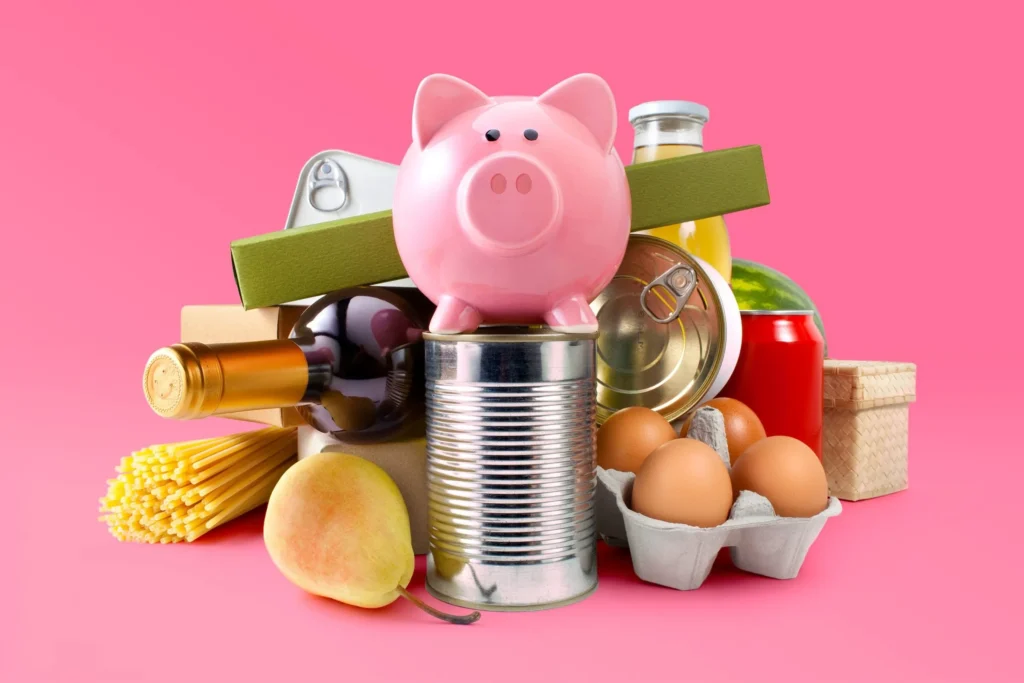Grocery budgeting is an essential skill for anyone looking to save money and reduce waste in the kitchen. Mastering grocery budgeting can help you stretch your food dollars, make the most of your pantry, and cut down on food waste. In this article, we’ll explore seven powerful strategies for grocery budgeting that will help you take control of your food spending without sacrificing quality or nutrition.
1. Start with a Meal Plan
Effective grocery budgeting begins with a solid meal plan. Planning your meals for the week allows you to buy exactly what you need and avoid unnecessary purchases.
- Choose Simple, Versatile Ingredients: Select ingredients that work in multiple meals, like rice, pasta, or vegetables.
- Make a List: Write down the ingredients for each meal to avoid forgetting items or overbuying.
- Plan Around Sales: Check local store ads and plan meals based on discounted items.
When you plan meals in advance, grocery budgeting becomes easier, and you can avoid the temptation to overspend.
2. Shop Your Pantry First
Before heading to the store, check your pantry, fridge, and freezer. Grocery budgeting is all about making the most of what you already have.
- Take Inventory: Create a list of items you already have so you can incorporate them into your meal plan.
- Organize Your Pantry: Keep similar items together so you know what’s available. This prevents duplicate purchases and wasted food.
- Use Up Expiring Items First: Incorporate ingredients nearing their expiration date into your meal plan to reduce waste.
Using what you have on hand helps maximize your pantry and aligns perfectly with effective grocery budgeting.
3. Buy in Bulk – But Only When It Makes Sense
Bulk shopping can be a great grocery budgeting strategy, but it’s essential to do it wisely.
- Compare Prices Per Unit: Sometimes, bulk prices aren’t as cost-effective as they seem. Always calculate the unit price to ensure you’re getting the best deal.
- Buy Only What You’ll Use: Stick to non-perishable items or items you can freeze. Avoid bulk buys that you might not use before they expire.
- Invest in Proper Storage: If you’re buying in bulk, ensure you have airtight containers to keep food fresh for longer.
With thoughtful bulk purchases, grocery budgeting can lead to long-term savings.
4. Embrace Store Brands
Opting for store brands instead of name-brand products can yield significant savings. Embracing store brands is a simple but effective grocery budgeting tip.
- Compare Ingredients: Store brands often have similar ingredients and quality as name brands, but at a lower price.
- Test Before Committing: If you’re hesitant, try a small quantity of the store brand before fully switching.
- Use Coupons and Loyalty Programs: Some stores offer additional discounts on their brands through loyalty cards and coupons.
Switching to store brands is an easy grocery budgeting adjustment that can reduce costs.
5. Stick to Your List – Avoid Impulse Buys
Impulse purchases are the enemy of grocery budgeting. Stick to your list to avoid unnecessary expenses.
- Shop After Eating: Shopping on an empty stomach can lead to impulse buys. Eat before shopping to avoid this.
- Limit Store Trips: Fewer trips to the store mean fewer chances to buy items you don’t need.
- Set a Budget: Having a spending limit in mind will help you stay on track and make grocery budgeting more effective.
Controlling impulse purchases is essential for consistent grocery budgeting success.
6. Shop Seasonally and Locally
Buying seasonal and local produce is a smart grocery budgeting strategy that can also support local farmers.
- Look for In-Season Deals: Seasonal produce is often more affordable and fresher than out-of-season items.
- Visit Farmer’s Markets: Local markets can have better prices on fresh produce and allow you to support local growers.
- Preserve Seasonal Foods: Consider canning, freezing, or dehydrating seasonal items for later use.
Seasonal and local shopping aligns well with grocery budgeting because it helps you find fresh foods at a reasonable price.
7. Cook in Batches and Use Leftovers Wisely
One of the best ways to minimize waste and improve grocery budgeting is by cooking in batches.
- Plan for Leftovers: Choose recipes that make large portions and can be used for multiple meals.
- Freeze for Later: If you cook in large quantities, freeze portions to avoid wasting food.
- Repurpose Ingredients: Use leftover vegetables, grains, and proteins in soups, salads, or stir-fries.
Batch cooking reduces time and food waste, making it a perfect grocery budgeting strategy.
Conclusion
Grocery budgeting isn’t about sacrificing quality or settling for less; it’s about making the most of your resources and minimizing waste. By following these seven tips, you can take control of your grocery spending, maximize your pantry, and enjoy fresh meals without breaking the bank. Start practicing these strategies today, and see the difference effective grocery budgeting can make!

